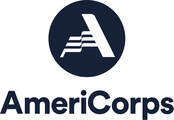|
The Lowe’s Charitable and Educational Foundation has a grant opportunity available to communities primarily focused on community investment projects and public education.
The Lowe’s Community Partners grant program helps build better communities by providing monetary assistance to nonprofit organizations and municipalities looking for support of high-need projects such as: building renovations/upgrades, grounds improvements, technology upgrades as well as safety improvements. Grants range from $2,001 to $100,000, with most projects falling between $10,000 and $25,000. The Lowe’s Heroes employee volunteer program is another opportunity for support, which Lowe’s can provide to some grant recipients to help supplement the labor of projects. Applicants — speak to your local store manager to see if this is a possibility before applying. The Community Partners 2016 cycle dates are: Spring: March 21, 2016 – May 23, 2016 Fall: July 1, 2016 – August 26, 2016 You can only apply for a grant during the cycle dates. During this time the application will become available. Click here to apply. Here are the giving guidelines, and Lowe’s also offers an FAQ. The boards of directors for Wheeling National Heritage Area Corporation(WNHAC) and Reinvent Wheeling are pleased to announce a merger of the organizations, a natural progression as the organizations work together to increase their community and economic impact through historic preservation and economic revitalization efforts. Under the merger approved by both boards, the organizations will become known as Wheeling Heritage and be governed by a 23-member merged board. Reinvent Wheeling will retain its name and identity, serving as Wheeling Heritage’s arm to help shape Downtown’s revitalization. Projects undertaken by both entities will continue as the merged organization continues its plans to activate the community in more initiatives.
Arch W. Riley, Jr., chairman of the Wheeling Heritage board stated, “Individuals, families, entrepreneurs and even corporations want to live, work and play in a community steeped in a rich history. Ensuring that we’re leveraging the development opportunities that our rich history provides, WHNAC encouraged the creation of Reinvent Wheeling in 2009. We’ve been working closely with the group for several years and our merger will not only improve our operations, but will work to engage more stakeholders and residents in the myriad projects under way.” “This merger is a natural next step in the positive relationship that we’ve developed,” said Jake Dougherty, Director of Reinvent Wheeling. “For over 20 years, WHNAC has made significant strides in affecting Wheeling’s economic development through meaningful preservation of Downtown structures and new buildings and entertainment venues. We’re thrilled to continue – and even bolster this work – and have big ideas when it comes to engaging more homeowners and residents.” The merger will bring operational efficiencies that include eliminating duplicative expenses, such as accounting and employee insurance costs. Combined, the organization has four full-time employees and two AmeriCorps members. “Development and heritage go hand in hand as we look toward a future that further embraces Wheeling’s history,” said Jeanne Finstein, Interim Director of Wheeling Heritage. “By merging, we can supplement the efforts of each group with new ideas and energy.” Top initiatives include heritage-focused economic development at the core of the city, restoration of Mt. Wood Cemetery, and renovation of the 1837 Blue Church in East Wheeling. Other key initiatives include: building analyses of historic properties and “preservation” assistance for owners; small business/entrepreneurship assistance; collections of archival materials; the awarding of mini-grants; and an effort to establish a Wheeling Museum. Reinvent Wheeling will continue regular successful events such as Show of Hands, which uses crowdfunding to foster entrepreneurism and has awarded more than $18,000 to projects as a result of eight events. For-profit and nonprofit groups can apply for the micro-grants from a Show of Hands and present a four-minute pitch to the crowd, which votes on projects to fund. Other community initiatives that have spurred social engagement include Big Ideas, Small Business Promotion and Workshops, and Public Space Development. “It’s a great time to be living and working in Wheeling, and we think anyone who wants to can play a role in revitalization projects and benefit from the changes,” said Riley. http://us9.campaign-archive1.com/?u=7d3caf4e57d068cc73a9d6431&id=72b4206769&e=278fd6e927
Applicant will be expected to provide tours to the public and develop museum interpretation for both permanent and temporary exhibits. A master’s degree in public history, museum studies, history or a related field is suggested.
Resume should be mailed to: MCHS P.O. Box 267 Moundsville, WV 26041 By Danielle LaPresta Parker
This week, the Preservation Alliance of WV received a $15,000 grant from the 1772 Foundation to conduct a revolving fund feasibility study. The 1772 Foundation, based in Newport, RI, is a national leader in the field of historic properties redevelopment programs. Many non-profit historic preservation organizations establish historic property redevelopment revolving funds to receive donations and other capital, which are used by the organization to either make loans for building renovations or purchase endangered properties that are then resold with easements. The organization earns either loan repayments or property sales to replenish the revolving fund and continue to redevelop properties across the state. The feasibility study is the first step in the process of developing a historic properties redevelopment program and will help to determine what kind of program will be most effective in West Virginia. “We are thrilled at having this opportunity to start a fresh program in the Mountain State focusing on developing existing cultural assets and are very thankful for the 1772 Foundation’s grant to us,” explained Executive Director Danielle LaPresta Parker. According to the 1772 Foundation, Executive Director Mary Anthony, “Historic properties redevelopment programs, sometimes known as revolving funds, greatly increase the number of historic buildings we can save and put back into use by the community. Unlike more reactive, traditional preservation models, they are proactive and robust; they move at the speed of the market, using the same tools and financing as for-profit developers. The 1772 Foundation awards grants for real estate education, fellowships, feasibility studies, and business plans in addition to increasing the capacity of existing programs through grants and loans to help grow this increasingly important sector of the historic preservation field.” Danforth Ely, president of The 1772 Foundation, noted, “We have been promoting the relationship between historic properties redevelopment programs and economic development for many years. I am happy to note that almost half of this year’s grant recipients are receiving 1772 funding for the first time.” Other grant recipients were the Newport County Development Council ($15,0000, Preserve Rhode Island ($30,000), the Providence Revolving Fund ($75,000), Cincinnati Preservation Association ($15,000); Connecticut Trust for Historic Preservation ($37,500); Fairmount Park Conservancy in Philadelphia, PA ($30,000); Germantown United Community Development Corporation also in Philadelphia ($50,000); Heritage Works in Dubuque, IA ($25,000); Historic Columbia Foundation ($15,000); Landmarks Illinois ($15,000); Louisiana Preservation Alliance ($75,000); Maine Preservation ($60,000); Michigan Historic Preservation Network ($75,000); Montana Preservation Alliance ($50,000); National Main Street Center in Chicago, IL ($135,000 – two projects), National Trust for Historic Preservation in Washington, DC ($225,000 – three projects); Preservation Alliance of New Orleans ($50,000); Preservation Maryland ($20,000); Preservation Massachusetts ($37,500); Restore Mobile ($25,000); The L’Enfant Trust in Washington, DC ($100,000); and Waterfront Historic Area League (WHALE) in New Bedford, MA ($150,000). The 1772 Foundation was named in honor of its first restoration project, Liberty Hall in Union, NJ, which was built in 1772 and is the ancestral home of the Livingston and Kean families. The late Stewart B. Kean was the original benefactor of The 1772 Foundation. The 1772 Foundation works to ensure the safe passage of our historic buildings and farmland to future generations. More information about The 1772 Foundation may be found at www.1772foundation.org. The Preservation Alliance of WV is the statewide nonprofit dedicated to historic preservation. Started in 1982, the Preservation Alliance of WV promotes the re-use of cultural resources. It administers the Preserve WV AmeriCorps program and the WV Endangered Properties List.
I would like to offer a note of thanks for the emails and cards of support. They were greatly appreciated. However, despite the temporary incapacity, preservation marches on! I would like to tell you about an event that will be coming up in March. The Southeast Region of the Association of Living History, Farms,and Agricultural Museums (SEALHFAM) and the West Virginia Association of Museums (WVAM) are joining together to offer a three day conference March 11th through the 13th at Jackson’s Mill in Weston. The event is entitled, “Can We All Work Together? Sharing the Knowledge and Resources; a Partnership for Success.”
According to Jackson’s Mill Preserve WV AmeriCorps member and Sessions Coordinator Joe Obidzinski, there will be a number of presentations covering various issues – including creating a historic site/program from the ground up, developing partnerships to meet ever-changing audiences and financial demands, various perspectives on new and emerging trends in the field of public history, as well as hands-on opportunities to become a blacksmith or grist miller for a day. In addition, I will be joining with windows expert Derrick Smith on behalf of PAWV on Friday, March 11th, to present an all-day, hands-on, window restoration workshop. We will utilize the windows in a small log house on the mill grounds to teach the attendees how to rehabilitate a historic wooden window – including how to cut and bed glass. For more information, please contact Joe Obidzinski via email at his jobidzin@mail.wvu.eduaddress. Speaking of workshops, now is the time for those of you interested in having PAWV conduct a historic windows restoration workshop at your site to sign up. The season begins the first crack of spring and ends with the cold weather, so let’s get those windows in good shape while the sun shines! We also off er presentations on a range of other topics – such as hazardous materials found in the home and workplace (and their mitigation), the National Register nomination process, and more. If you are interested in having a workshop at your site, please contact me at lstasick@gmail.com. I look forward to gettng back on the road and visiting with you, but until then, stay well, stay busy, stay excited, and thanks again for the kind concern. Your friend and servant in preservation, — Lynn Statewide Historic Preservation Conference:
“This Place Matters – Connecting with Historic Places” This three-day biennial conference will be held primarily in Beverly, with some programming in the immediate Randolph County vicinity. PAWV is excited to be in Beverly for the upcoming conference. Beverly dates back to the Revolutionary War period and is one of the first settlements west of the Allegheny Mountains. By the time the crucial Civil War battles were fought nearby in 1861, Beverly was an established county seat and crossroads. The rise of nearby Elkins at the end of the 19th century left Beverly to be largely unaffected by later development. Participants will have a chance to tour and learn intimate details about preservation successes in Beverly. The 8th Annual Historic Preservation Awards Banquet will be on Friday, the 23rd, and will be held at Halliehurst Mansion (a National Historic Landmark) in Elkins. PAWV is currently accepting session proposals for the conference. Contact info@pawv.org for a copy of the conference request for proposals. The due date for submissions is March 25, 2016.
For people who lived and grew up in the Charleston area, looking up at the stunning structure was part of the ritual of driving along the Kanawha River. The circular building, built out of wood, steel, and glass, sat atop a rocky ridge – perched strategically for everyone to see as they travelled along the river. Many dreamed of living there, or of just visiting to overlook the Kanawha Valley from the 6,000 square foot cylindrical studio that gave Top 0 Rock its distinguished elegance.
The demolition followed several years of vacancy and deterioration (after Elden’s 2009 death and the property’s 2011 sale), a period capped off by major vandalism in 2014. In early 2015, PAWV named Top 0 Rock one of the two inaugural properties on its new Buildings at Risk Register (BARR), and other groups also made concerted preservation efforts (including a design competition to find potential adaptive reuses for the unique structure). However, insisting restoration costs were financially unfeasible, the owner chose to demolish – causing a very unfortunate loss to West Virginia’s built heritage. There is still no word about future plans for the site. By Danielle In West Virginia, we face an abandoned and dilapidated properties dilemma. With over 400,000 homes built more than 50 years ago, the Mountain State is littered with old neighborhoods now sitting empty and decaying, while nearby industrial sites are contaminated with hazardous materials. In the late 1980s, Ranson and Charles Town, like many rural towns before them, suffered the fate of outward migration as factories closed. For this featured preservation success story, we’ll learn about how one university system has spurred a revitalization on in these neighboring communities in Jefferson County. After losing an 800- employee business in 2001, the two cities joined together with a vision to to create a precedent-setting Area-Wide Brownfields Plan to beautify and re-use brownfields, a term for vacant properties and hazardous industrial sites. A year later, American Public University System (APUS) joined the brigade to revitalize the area – while utilizing energy efficient building techniques, including solar energy and an electric/ hybrid car charging station. APUS is an online, for-profit university offering more than 90 degree programs through American Military University and American Public University over 100,000 working adults. In 2002, it relocated its headquarters to Charles Town from Manassas, VA. Almost 15 years later, with over $55 million invested, APUS has been the defining force breathing life back into these former industrial hubs. What makes this story even more unique is APUS’s dedication to historic preservation. APUS has singlehandedly rehabilitated over 15 historic properties surrounding the Commerce Corridor, a 1½ mile segment connecting the historic downtowns of Ranson and Charles Town.In the 2013 Brownfields Plan, six brownfields were targeted for community redevelopment projects along this corridor – which APUS’s revitalization movement is turning into the “Green Corridor”. In 2011, APUS opened the doors to its new Academic Learning Center on the Veiner Scrap Yard site. Linking Ranson and Charles Town, it was used for over a century for metal disposal and recycling. The former industrial park closed unexpectedly and sat vacant for almost two decades. APUS not only redeveloped the property into its LEED Gold 45,000 square foot Academic Center, but also opened its LEED Silver Financial Center and the state’s largest solar array-covered parking lot. These brownfield redevelopment projects, along with recent historic home renovations along South George Street, are having significant and lasting economic and social benefits. APUS’s preservation ethic maintains streetscapes and encourages healthy living by walking.
Why did APUS choose the preservation route? It’s simple, explains APUS’s former President and CEO, Dr. Wallace E. Boston: “In addition to revitalizing Charles Town’s downtown, we realized that our renovations were not requiring the city or county to expand its transportation and utility infrastructure. We also concentrated our growth in an area where some businesses had moved out and our presence was supporting local restaurants and other merchants that might have otherwise closed.” The university owns eight historic properties along S. George Street, the primary corporate campus for APUS’s 600+ employees. In 2015, APUS announced the completion of three exciting, historic home rehabilitation projects at 200, 208, and 300 S. George Street. APUS preserved the buildings’ exterior integrity while incorporating new interior design elements and energy efficiency techniques. Two are now Guest Quarters for APUS Executive Team members who do not live in Charles Town but work there frequently during the week. The third house opened as the Eastern Panhandle’s first Technology Innovation Center, a small business technology incubator, focused on veteran-based entrepreneurs and technology-based companies. These projects are all in addition to the significant contribution APUS made in assisting the Friends of Happy Retreat and the City of Charles Town in securing the Happy Retreat mansion and estate. This preservation ethos has multiple benefits, according to Dr. John Hough, Vice President of Community Relations at APUS, who explained, “Developing the property [at Happy Retreat] helps beautify the community and recruit potenial employees [to APUS].” With an innovative and smart approach to property redevelopment, APUS exemplifies the rehabilitaion projects that PAWV promotes. APUS is a model for best practices in brownfield and historic property redevelopment. Join PAWV in celebrating APUS’s successes and its laudable pledges to continued economic development in the state’s eastern panhandle. Top 5 Historic Preservation Blog Posts for 2015
Dear Reader, Did you know you can support PAWV by becoming a contributing member? By investing $25 today, you not only give much-needed support to PAWV, but you can also receive a tax deduction on your federal income tax. Join today, and get the deduction for 2015! Your generous donation supports projects all over the state like the ones featured in our Top 5 Blog Posts, and by becoming a member, you also will receive the “Preservation News” quarterly newsletter and discounted entry into PAWV events. Thank you for your support. To become a member, visit the membership link at http://pawv.org/join.htm. Kind regards, PAWV Staff |
News and NotesCategories
All
Archives
January 2024
Subscribe to our mailing list to receive e-news updates on historic preservation news and events in West Virginia.
|
Get Involved |
Programs |
Contact UsPreservation Alliance of West Virginia
421 Davis Avenue, #4 | Elkins, WV 26241 Email: info@pawv.org Phone: 304-345-6005 |
Organizational Partners:
© COPYRIGHT 2022 - PRESERVATION ALLIANCE OF WEST VIRGINIA. ALL RIGHTS RESERVED.

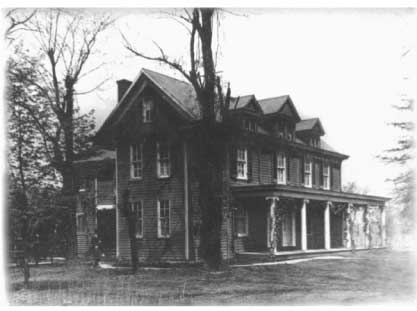
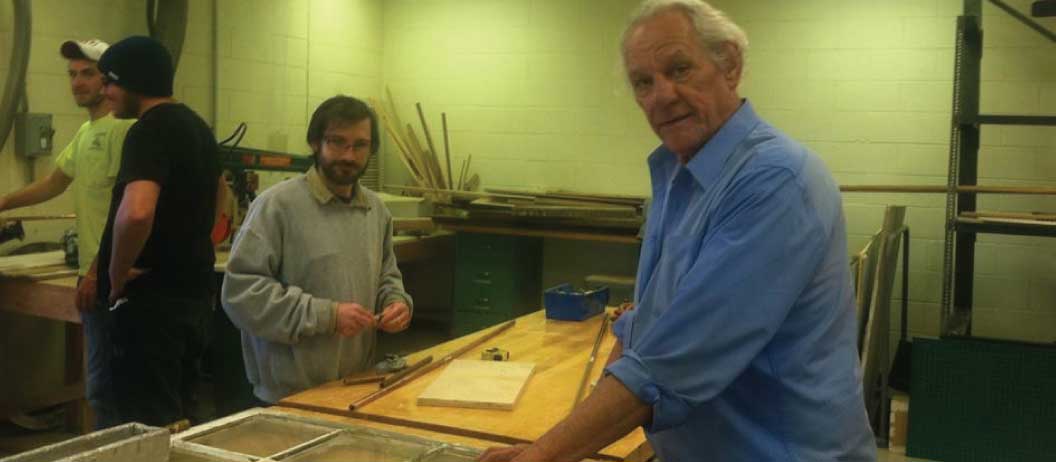
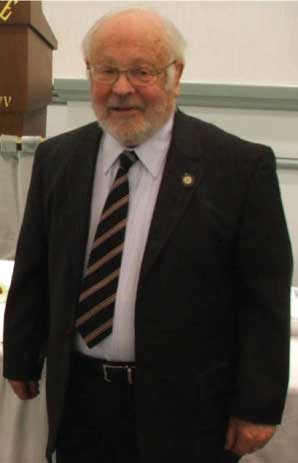
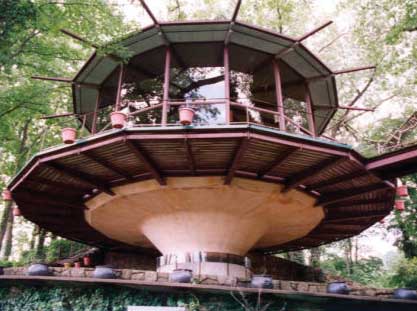
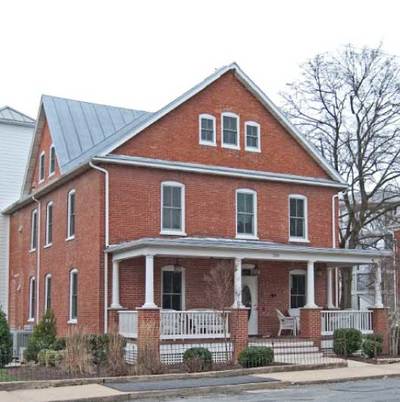
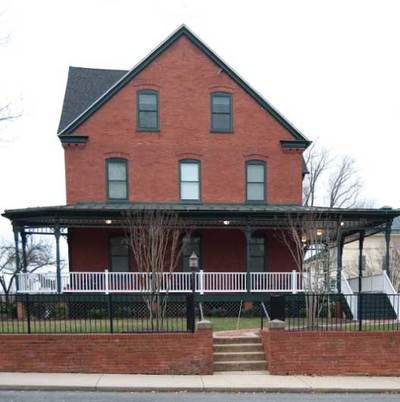
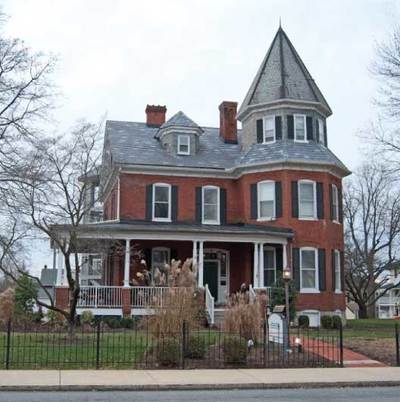
 RSS Feed
RSS Feed

